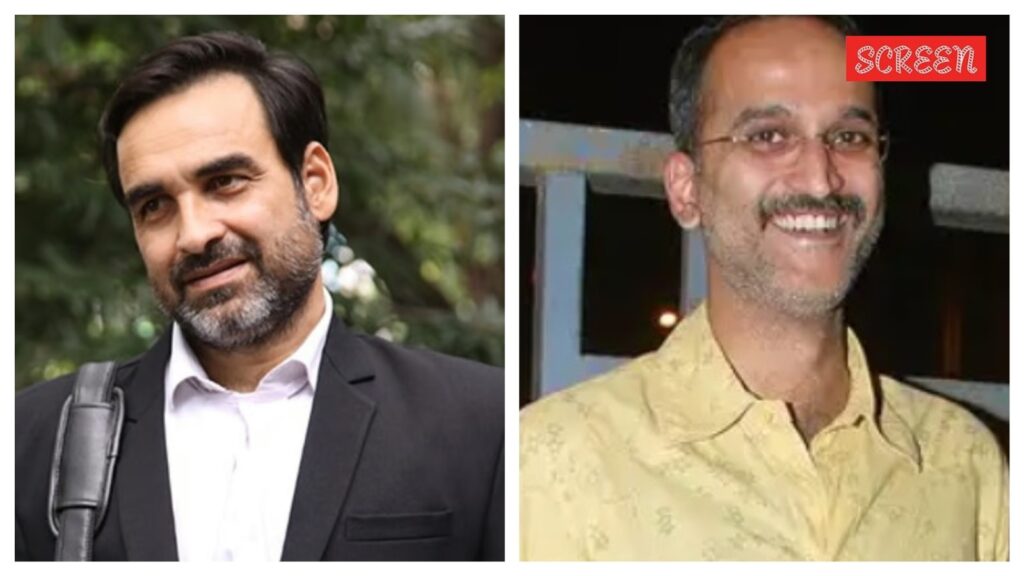970x125
Rohan Sippy hasn’t directed a feature film in a decade. His last theatrical release as a director was Dum Maaro Dum in 2015. Ever since the advent of streaming giants in India the next year, Sippy has been busy helming shows across genres — from comedies like The Office and Sandwiched Forever to thrillers like Aranyak and Criminal Justice. But he believes in lending a thriller-like edge to his comedies and comedy-like gags to his thrillers. In an exclusive interview with SCREEN, Sippy opens up on taking on Criminal Justice after its inaugural season, working with Pankaj Tripathi, and exploring motherhood through a legal procedural like Criminal Justice: A Family Matter.
970x125
How did you come onboard Criminal Justice season 2, after the first one was helmed by Tigmanshu Dhulia?
I’d done The Office with Applause Entertainment and BBC in the middle of 2018. Then in the middle of 2019, they got the greenlight to take Criminal Justice forward. So that’s how it came into my orbit. It was exciting for multiple reasons. Firstly, Pankaj Tripathi is a very watchable actor, and I was very keen to work with him. Secondly, I’d never done a legal procedural thriller. It was always exciting to watch, but to be able to work on it is interesting. I finished my four episodes right before the lockdown hit (in March 2020), and poor Arjun Mukerjee had to wait till August to finish his section.
Your Bluffmaster! (2005) screenwriter Shridhar Raghavan was the lead writer on Criminal Justice season 1. But he was replaced by Apurva Asrani in season 2. In his absence, how did you make the show your own after you came onboard?
Sridhar Raghavan was the lead writer in the first season. He was critical in getting Pankaj onboard. But he departed before the show was shot, from what I understand. You do it a little gingerly at first. There were Pankaj Tripathi and some people from BBC who continued from season 1 so they became my biggest guides. And like season 1, season 2 also had an original British version. The major departure was they continued with Madhav Mishra (Tripathi’s character) while there were some women lawyers in the British version. Then the writing usually informs how you execute it.
Till season 2, Criminal Justice was an adaptation of the British original. It took a life of its own season 3 onwards. How did you lend it an independent identity?
The Criminal Justice template is: if you bring an innocent person into the system, they may end up becoming a criminal. That was also the starting point of the original Criminal Justice and even the American adaptation, The Night Of. What I liked is in season 3 and 4, our Criminal Justice evolved into a Perry Mason kind of a show, where there’s a lawyer with interesting cases coming his way. There were more relationships added, and it’s not just a dark thriller anymore. I think it works wonderfully and gives it its own identity.
Story continues below this ad
Since Criminal Justice also became a relationship drama by the time it entered season 4, do you think Madhav Mishra’s change of heart in the climax stems from the fact that he’s now a family man?
For the audience, it gives more legitimacy to the decision because you subconsciously absorb that he’s more in that position than the sole lawyer he was in season 1. It affects him differently than it would’ve if he hadn’t developed that side of him. The show finds its own feet, its own tone as you go further. Not that you’re moving away from anything, but you’re just finding what more it can be.
How easy or tough is Pankaj Tripathi to work with, given his spontaneity and tendency to pepper humour over the gravest of scenes?
The biggest lighthouse in my first season was Pankaj Tripathi. He was incredible in helping me understand and giving me more confidence that both of us can depart from what’s there on paper, but still make the same point in the way we want to make. He’s also a very giving actor, allowing his co-stars an extra line or two. He’s very right in injecting humour into everything he does. I’m also biased like that. I instinctively look for humour in whatever material I’m working on, especially thrillers. When I was doing Aranyak, I was looking for that one beat where you can bring the humour out. Because then it helps you when you want to go back into the next revelation or thrill.
Story continues below this ad
Also Read — Rajesh Tailang, Sheeba Chaddha on playing parents in Mirzapur vs Bakaiti: ‘You fight at home, but aisa nahi bachcha Guddu bhaiya ban jaega’
Criminal Justice: A Family Matter explores motherhood through a courtroom drama instead of a hackneyed revenge thriller. How did you explore motherhood through such an unconventional format?
That’s done on paper to an extent. You keep that spirit in mind when you’re executing it. Luckily, with an actor like Surveen (Chawla), she also internalized that pretty quickly. She herself is a mother, so those are themes that would resonate with you when you’re reading them as an actor. You’ll add that extra connection to it. The kernel of the idea was the extent a mother would go to protect her child. It’s very universal, but the whole idea is when you’re doing something as simple as that, you have to make that screenplay that elaborate to reach there.
970x125

